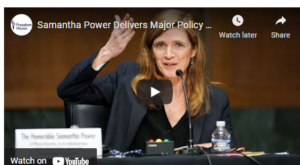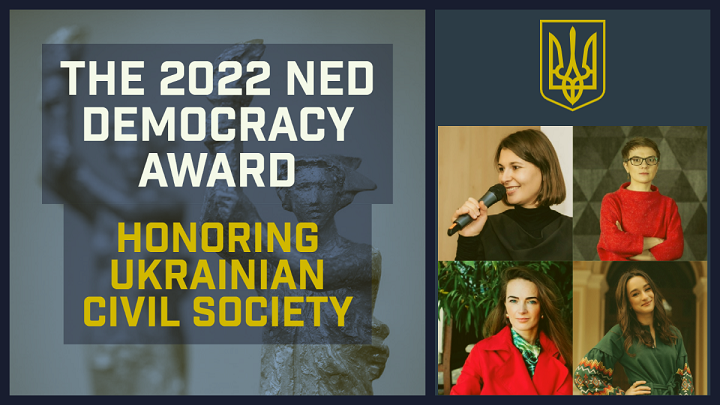USAID Director Samantha Power sees the story of Ukraine’s struggles as part of a global test for American values, Bret Stephens writes for The New York Times.
“This is a time in which the contest between an autocratic and kleptocratic model, and a democratic and accountable and more inclusive model, is playing out all around the world,” she told me. “We are in the 17th straight year of freedom in decline around the world. There are real questions about democratic backsliding and which model is going to prevail.”
 Power credits Ukraine’s civil society for acting as anti-corruption watchdogs and safeguarding against the re-emergence of the country’s notorious kleptocrats.
Power credits Ukraine’s civil society for acting as anti-corruption watchdogs and safeguarding against the re-emergence of the country’s notorious kleptocrats.
“It’s not a coincidence,” she noted, “that virtually all of the news stories that have come to light — the firings, the prosecutions that have been done since the full-scale invasion — have been brought to light by whistleblowers, by civil-society anti-corruption watchdogs that we have funded, by independent media that aren’t just doing ‘rally round the flag’ but believe it is their role to uncover wrongdoing.”
Anna Bondarenko (above)*, who at 27 is the founder of the nonprofit Ukrainian Volunteer Service. As a teenager, she was inspired by examples of volunteerism during a State Department-funded exchange program in Jamestown, Calif., Stephens adds.
“Before the invasion we had 10,000 volunteers. Now it is 200,000,” she explained when I met her in Odesa. Her organization has people ranging in age from 14 to 82 and a budget of $700,000, some of which comes from U.S.A.I.D. The volunteers do everything from working in national parks, to helping the country’s more than five million internally displaced persons, to teaching the value of volunteer work to high school students.
* A recipient of the National Endowment for Democracy’s 2022 Democracy Award.








